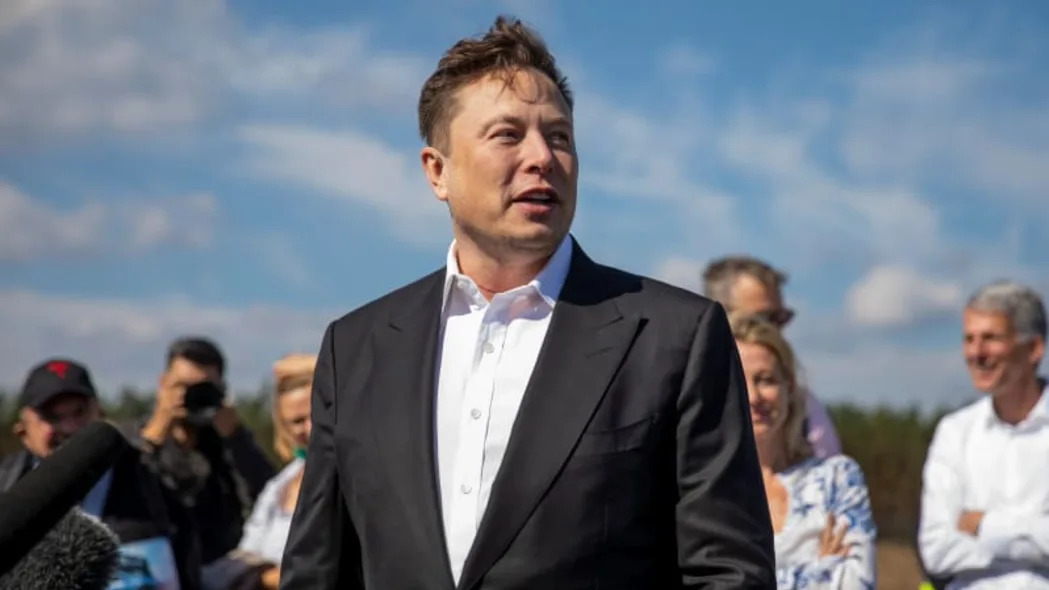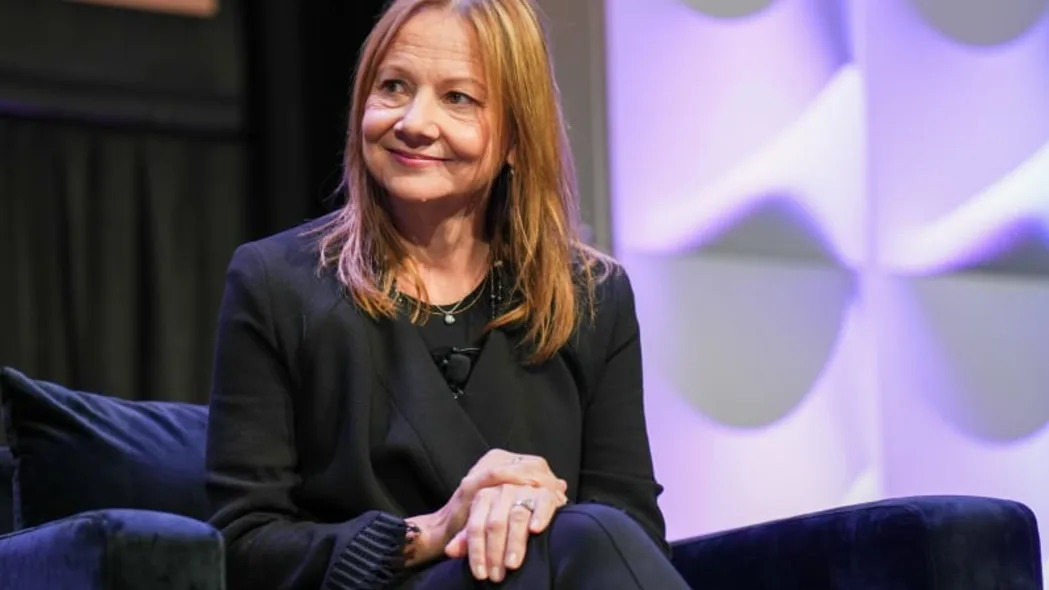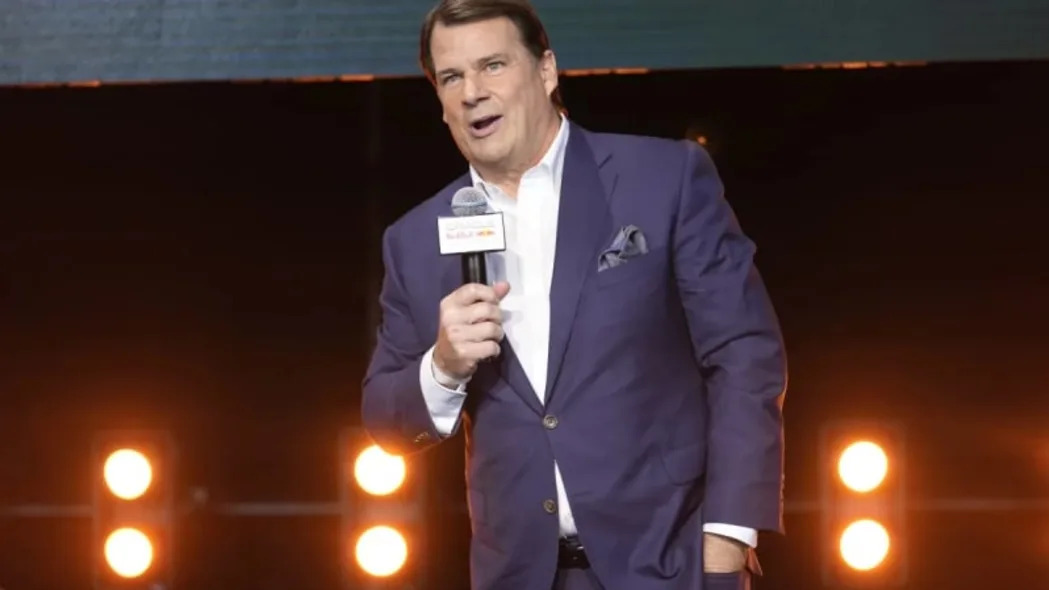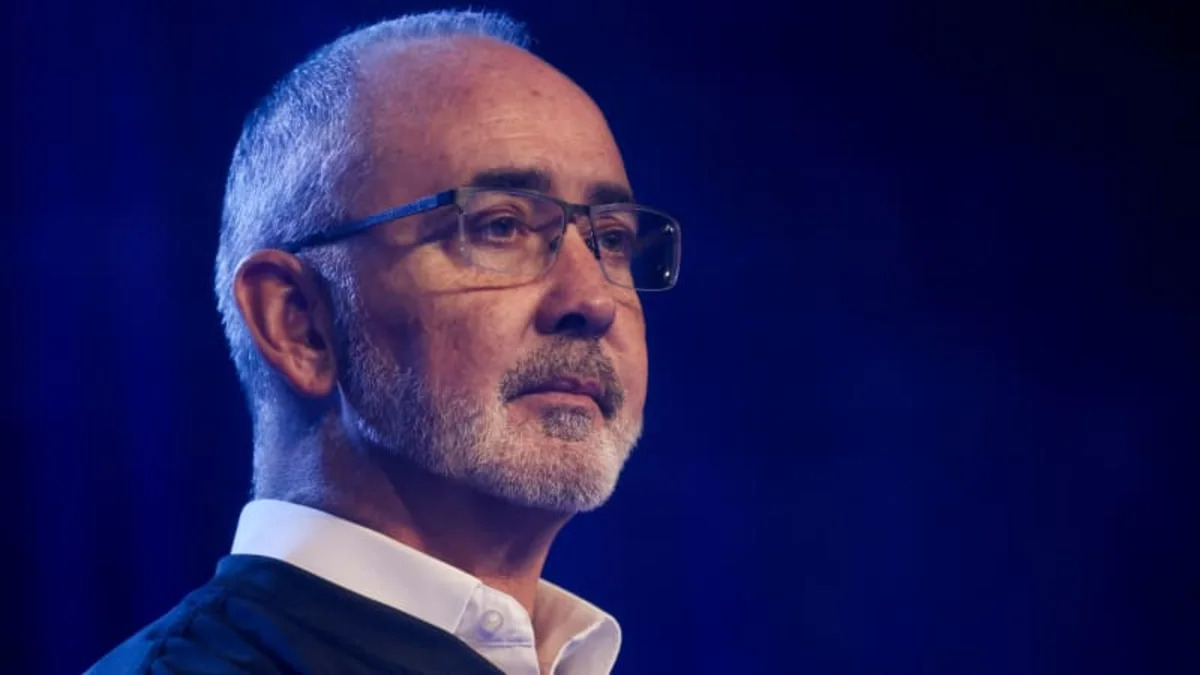DETROIT — Being the head honcho in the automotive industry is a tough gig. Some leaders bear the weight of the job better than others, and every year a handful stand apart from the herd for the consequential impact they have on the business. This year was one of the most eventful in recent memory in the car world. From the UAW's Stand Up Strike to the industry's continuing transition to electric vehicles, there were few dull moments. In compiling this list, I looked at key decisions that will reverberate for years, affecting consumers and, in some broader cases, society.
Here’s my list of industry leaders who had the greatest impact in 2023.

No. 1: Shawn Fain
The United Auto Workers’ fire-breathing leader wrenched major concessions from Detroit’s Big Three, calling for an unprecedented national strike that reset labor relations in America for years. Fain is an improbable leader. He eked out a razor-thin win to secure the UAW’s presidency in March, and stood toe-to-toe with seasoned executives like General Motors’ Mary Barra and Ford’s Jim Farley during bargaining. After a six-week strike, Fain emerged with an unquestioned victory for his union.
Although he won significant concessions from the Big Three, Fain did an even better job of controlling the message and enlisting powerful allies, including President Biden, in his fight for better wages and benefits. He deftly exerted maximum pressure on Detroit’s execs, but in the end accepted a deal that increased wages 25% over the life of the contract — short of his original demands of 40%. While the union made brash statements about leaving the carmakers “wounded for months,” the contract ended up as a livable compromise, despite the rhetoric from all sides. Case in point: GM claimed a $9.3 billion hit from the strike, while simultaneously issuing a $10 billion stock buyback plan to boost dividends.
Broadly speaking, Fain did more than secure a tactical win over management. That’s been done before. Rather, he ignited the passions of a labor movement not seen in this country in decades. He tapped into the mood of Americans to organize for better wages, something for which casino workers, nurses, actors and writers all walked for their jobs this year. It’s not a coincidence that Honda, Toyota and Hyundai gave their factory workers raises immediately after UAW workers ratified their contracts, and Fain has already made rumblings about organizing Tesla and Volkswagen, too. I wouldn’t bet against him.

No. 2: Elon Musk
The Tesla CEO is a tornado of disruption in the auto industry. We haven’t seen the likes of him in decades. There’s not many apt comparisons. Perhaps if Lee Iacocca or Henry Ford II acted on every nutty impulse they had, or if John Z. DeLorean actually had adequate working capital, we might have seen something close to Musk's omnipresence. But that’s just cars. The Tesla CEO also owns X, the platform formerly known as Twitter, and runs SpaceX, which puts rockets into space. Frankly it’s startling that one man has this much power over society.
He also makes wildly offensive statements, has alienated both U.S. political parties in some way and has managed to irk nearly everyone in the car biz at some point.
Musk oversees the largest electric vehicle maker in the world. He was proved prescient for investing in Tesla’s Supercharger network, and this year nearly every automaker signed on to use it. While other companies focused solely on EV technology — or on resisting it — Musk realized that charging infrastructure is just as important as the cars themselves. It’s been an uneven year, to say the least, for Musk. He finally managed to launch the Cybertruck, and at least initially, the build quality appears better than many feared. Then NHTSA forced Tesla to recall nearly every car it's made since 2012 to correct Autopilot’s failures. In many years, all of this would be more than enough to put Musk at the top of this list.

No. 3: Mary Barra
The longest-serving General Motors chief executive since Alfred P. Sloan retired in the 1946, Barra has achieved widespread respect for making tough decisions and overseeing an era of mostly prosperity for GM during her decade at the helm.
Outside of Musk, who only sells EVs, Barra is perhaps the industry’s biggest advocate for electrifying America. Biden himself has referenced her enthusiasm, and as the EV market grows, GM is well positioned to capitalize with products like the Chevy Blazer EV and Cadillac Lyriq. She was inducted into the Automotive Hall of Fame in February in recognition of her influential stint at GM and groundbreaking status as the first woman to lead an automaker.
While her plaque is already hung, Barra says she has no plans of slowing down. She turns 62 years old on Christmas Eve and has indicated she’s not interested in a second act as a politician (WikiLeaks says she was under consideration to be Hillary Clinton’s vice president in 2016).
That said, GM faces many challenges. Its investment in Cruise Automation has turned into a money pit and a quagmire, and Barra has admitted disappointment in GM’s EV production. The company appears to have a formidable portfolio of EVs — it’s just not building all that many of them.

No. 4: Jim Farley
The Ford CEO executed on his plan to organize the Blue Oval into separate units for gasoline-powered vehicles and EVs, complete with broken-out financial reporting. It’s creative, and showed Wall Street he was serious about moving Ford into the future. The charismatic 61-year-old Mustang fan, race car driver and podcast host has brought an energy to the company that his immediate predecessors, Jim Hackett and Mark Fields, lacked. Fields was fired when Ford’s stock price plummeted on his watch, and Hackett, a former furniture CEO and University of Michigan athletic director, retired after a mostly anonymous tenure at the helm. Farley has accomplished more than both of them, launching EVs like the F-150 Lightning and Mustang Mach-E while pushing the Blue Oval’s stock price in the right direction.
While Biden praised Barra for GM’s EV efforts, under Farley, Ford has produced results that are just as credible. And unlike GM, Ford wisely exited the autonomous vehicle space, dumping the company’s stake in troubled self-driving company Argo AI before it folded last year. Despite backing from Ford, VW and Amazon, three of the richest companies in the world, Argo collapsed — and Farley apparently saw it coming. The grandson of a Ford factory worker, Farley bleeds Ford Blue, and his legacy as CEO will be defined in the next few years.
Greg Migliore is the editor-in-chief of Autoblog. He's a member of the North American Car, Truck and SUV of the Year Awards jury, and serves on the board as treasurer.


Sign in to post
Please sign in to leave a comment.
Continue